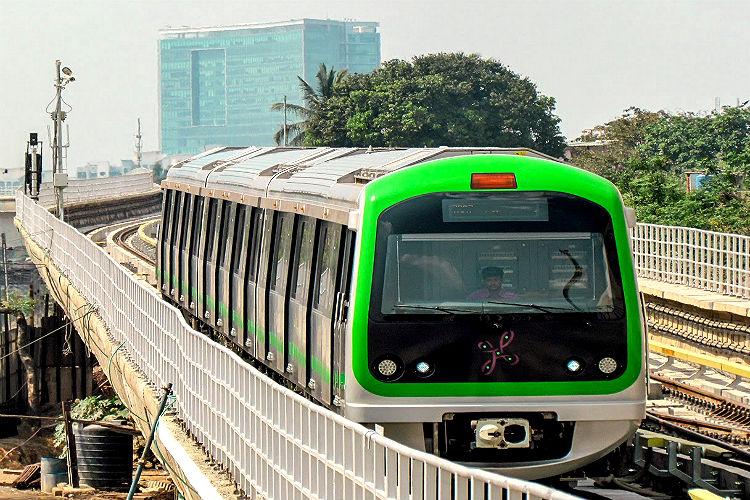With the Covid-19 pandemic and subsequent lockdown, BMRCL’s revenue generation has been affected, and is looking at the Karnataka government to raise the loans.
The Bangalore Metro Rail Corporation Limited (BMRCL) needs to have a minimum of Rs 300 crore for managing the salaries of the employees, maintenance, and servicing of the loans already taken.
With the onset of the Covid-19 pandemic in 2020, the services of the Namma metro were badly affected, with operations only for limited hours. This led to a major fall in the revenue generated, which includes both fare and non-fare by a major 82 %.
Earlier, in 2019, the BMRCL had registered a revenue growth estimated to be Rs. 418.78 crore, anticipating the trends in the growth will continue. However, there was a fall in the pandemic induced by Covid-19 in 2020, with only Rs 78.92 crore, and the officials are not expecting the figures to get any better.
For the month of April, when the metro was operational, a revenue of only Rs. 9.42 crore was collected, which is less than even 30 % of the Rs 35 crore average generated monthly amid the pre-pandemic times.
In a disclosure, BMRCL revealed the first-quarter revenue to be nearly Rs. 33.39 crore along with a loss of Rs. 50.51 crore in the same period. While accepting that the restrictions on the metro will be prevalent, ridership will not have a surge even if the trains are permitted for operations.
The disclosure said, “Recovery of the operating costs in itself may be difficult. As such, the company has approached the state government, being the co-promoter of the company, for extending financial assistance and has also planned to meet its overheads and other financial obligations through short-term borrowings from banks.”
A senior official revealed that BMRCL spends around Rs 31 – 32 crore per month on operations and maintenance of Namma Metro.
The official stated, “By shutting operations, we may be saving Rs 8 crore on electricity charges. However, we still need about Rs 21 crore for staff salary and maintenance. In addition to this, about Rs 12 crore is required to service the loans for Phase 1.”
According to the tripartite agreement, the Karnataka government should provide assistance to the BMRCL for bridging revenue gaps, particularly for loan repayment.
A source said, “Now, the government itself is caught in a financial crisis. Besides, the government needs to support the Phase 2 projects. Borrowing becomes a necessity under such circumstances.”


